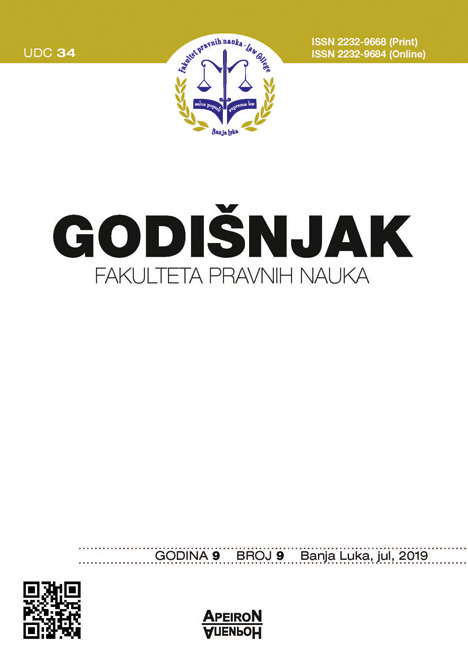Criminal Autonomy and Specificity of International Trafficking in Human Being // Krivičnopravna autonomnost i specifičnosti krivičnog djela međunarodna trgovina ljudima
DOI:
https://doi.org/10.7251/GFP1909201KAbstract
In this paper, the authors referred to criminal autonomy and certain specificities of the crime of international trafficking in human beings, as well as the differentiation of the said criminal offense in relation to other related criminal offenses. This criminal offense is often unnecessarily identified with other related criminal offenses, although by its criminal law it constitutes an autonomous or autonomous criminal offense with clearly prescribed objectively-subjective characteristics. International human trafficking is a complex social legal phenomenon that is not a novelty in society, but its phenomenological manifestations have changed and adapted to certain conditions and circumstances in the phenomenological sense in different periods of history. Also, this paper articulates the complexity of discovering, investigating and proving this criminal offense, taking into account the restrictive legal requirements of the criminal and material nature that determine the actions of the law enforcement entities. It is not disputed that at the international level there is a clear commitment to the efficient and energetic struggle against this criminal offense, and in that sense, numerous international legal documents that form the platform or basis for the creation of national regulations in Bosnia and Herzegovina have been drafted and adopted, appreciating the complex constitutional the structure and existence of different levels of government. However, despite all the efforts at the international and national level, it is evident that international human trafficking is nevertheless a social and legal reality that is present even in economically developed and democratically regulated states, and as such presents a challenge to the present in terms of its criminal-law suppression.Downloads
Published
2019-10-14
Issue
Section
Чланци
